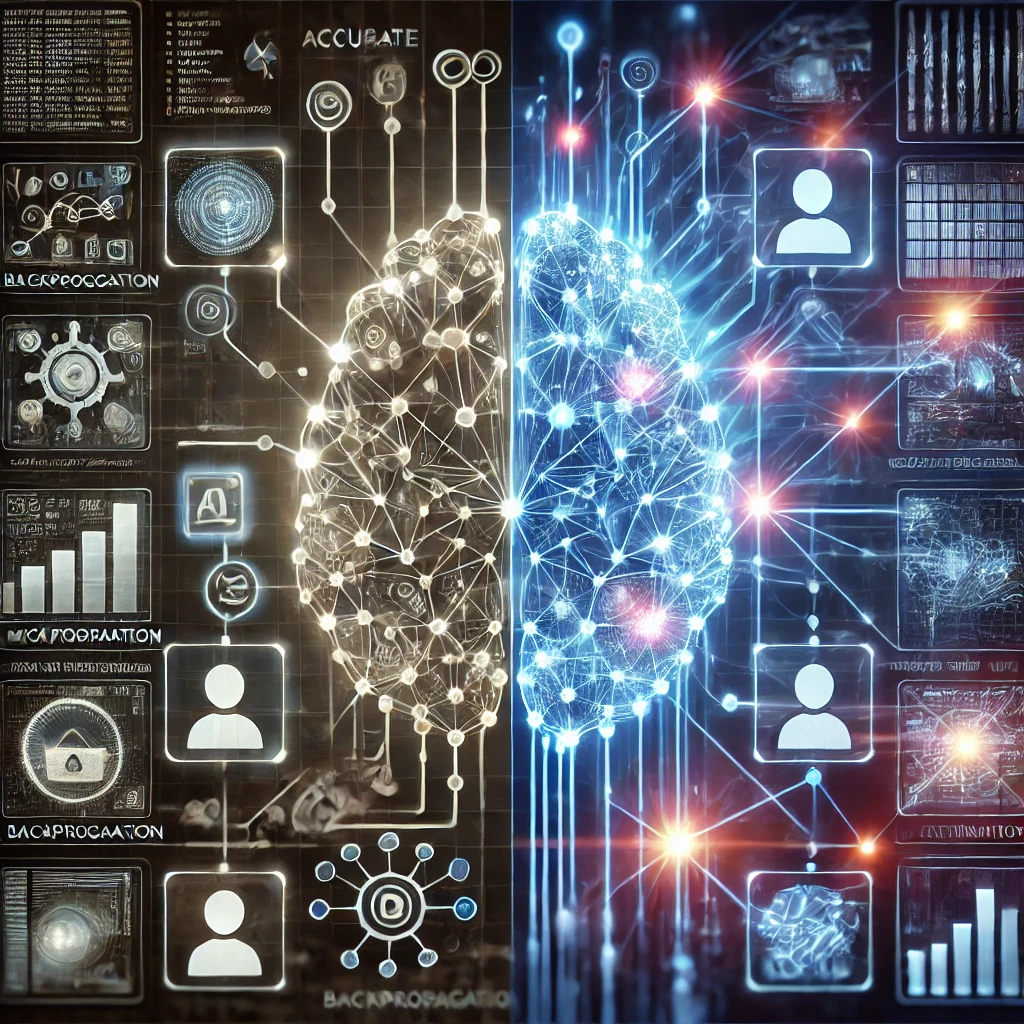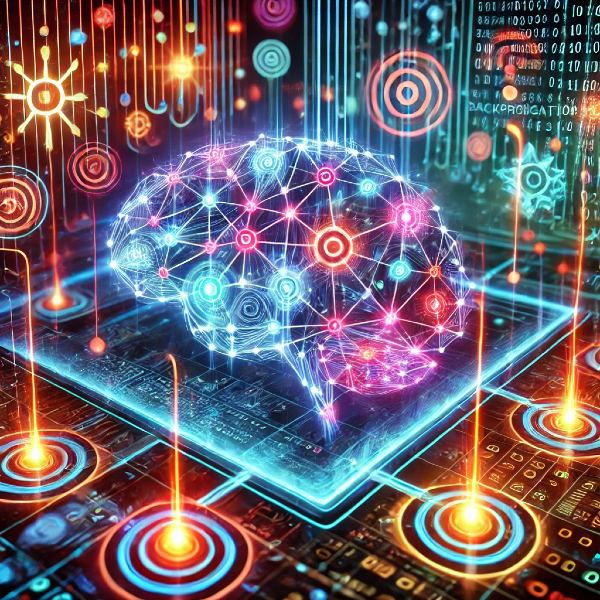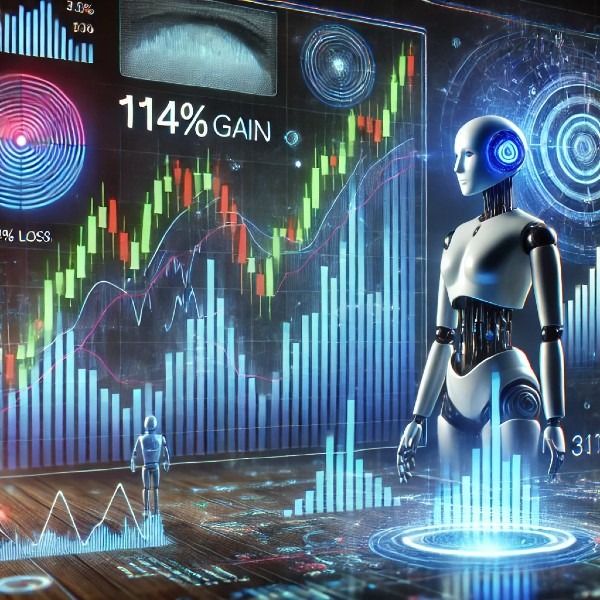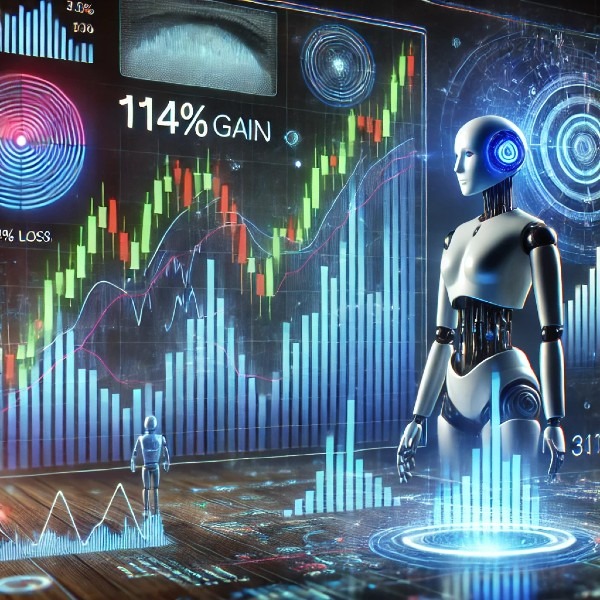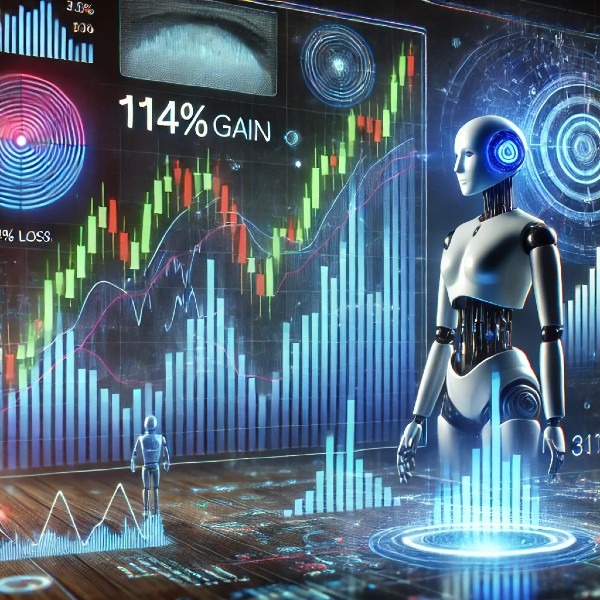Welcome to the fascinating world of Black Box AI! This might sound like a term from a sci-fi movie, but it’s actually an important concept in today’s technology. Black Box AI refers to artificial intelligence systems that are highly effective but operate in ways that aren’t fully understood by humans. Imagine a robot that can solve complex problems, but no one can explain exactly how it figures out the solutions. That’s Black Box AI for you!
In this blog post, we’re going to explore Black Box AI and its impact on various fields such as finance, the world of students and educators, robotics, and how it’s shaping the future of work. This guide is crafted to be easily understandable, especially for eighth graders or anyone new to the concept of AI. So, let’s dive in and discover how Black Box AI is changing our world!
Finance
In finance, Black Box AI is like a super-brain for money matters. It looks at tons of financial data – like stock market trends, economic indicators, and bank transactions – and makes predictions or decisions. This is really useful for people working in finance because it can help them make smart decisions about where to invest money or how to manage financial risks.
However, the tricky part about Black Box AI in finance is that sometimes, even the finance experts don’t fully understand how it made a certain decision. This can be a problem, especially if people are affected by these decisions, like being denied a loan. That’s why it’s important for financial professionals to use Black Box AI carefully and try to understand as much as they can about how it works.
Students and Educators
For students and educators, Black Box AI is both an exciting and challenging subject. It’s exciting because it offers new ways to learn and teach. For instance, AI can help create personalized learning experiences for students or assist teachers in grading. This can make education more effective and fun.
But the challenge is understanding how Black Box AI makes decisions in educational settings. Sometimes, it’s not clear why the AI system recommends certain learning paths or grades assignments a certain way. This can raise questions about fairness and accuracy, making it important for educators to balance the use of AI with their professional judgment.
Robotics
Robotics is one of the most exciting areas where Black Box AI is used. In robotics, AI helps robots learn from their experiences, make decisions, and perform tasks more efficiently. This can be seen in everything from manufacturing robots in factories to robots used in healthcare.
However, just like in finance and education, understanding how Black Box AI in robotics makes decisions can be challenging. It raises important questions about safety and reliability. As robots become more common in our lives, ensuring they are both effective and safe is a key concern for everyone involved in robotics.
Myths vs. Facts about Black Box AI
Myth 1: Black Box AI is Always Unreliable
Fact: Black Box AI can be incredibly reliable and accurate. The ‘black box’ aspect refers to the lack of transparency in its decision-making process, not its reliability.
Myth 2: Black Box AI is Too Complex for Practical Use
Fact: While Black Box AI is complex, it is already being used effectively in many practical applications, from finance to robotics.
Myth 3: Black Box AI Operates Completely Independently
Fact: Black Box AI systems still require human oversight and input. They are tools that aid in decision-making but don’t replace the need for human judgment.
FAQ Section
Q1: What is Black Box AI?
Black Box AI refers to AI systems where the decision-making process is not easily understandable. It’s like having a robot that can solve problems, but we can’t see inside its ‘brain’ to know how it does it.
Q2: Why is Black Box AI important in finance?
In finance, Black Box AI helps analyze large amounts of data to predict market trends and make investment decisions. Its ability to process information quickly and accurately makes it a valuable tool in this field.
Q3: How can students and educators benefit from Black Box AI?
Students and educators can benefit from Black Box AI through personalized learning tools and automated grading systems. However, it’s important to understand how these AI systems make decisions to use them effectively and fairly.
Q4: What role does Black Box AI play in robotics?
In robotics, Black Box AI enables robots to learn from their experiences and make decisions autonomously. This is crucial for developing advanced robots that can perform complex tasks efficiently.
Q5: How is Black Box AI shaping the future of work?
Black Box AI is transforming the future of work by automating tasks, improving decision-making, and creating new job opportunities in AI and robotics. However, it also means we need to adapt and learn new skills to work alongside these advanced technologies.
Google Snippets
Black Box AI
Black Box AI is a type of AI where the inner workings are not fully understood. It’s widely used for its ability to handle complex tasks and large amounts of data.
AI in Education
AI in education is changing how students learn and teachers teach. Black Box AI plays a role in this transformation by providing personalized learning experiences and efficient grading systems.
Robotics and AI
Robotics and AI involve using artificial intelligence to enhance the capabilities of robots. Black Box AI is key in making robots more adaptive, intelligent, and useful in various industries.
Black Box AI Meaning from Three Different Sources
Tech News Outlet: Black Box AI refers to AI systems with complex internal mechanisms that are not fully transparent, offering advanced capabilities but also presenting challenges in understanding.
Educational Technology Site: In education, Black Box AI is used to describe AI systems that assist in learning and teaching but with decision-making processes that are not completely clear.
Science Journal: Black Box AI is characterized as AI that performs tasks or makes decisions based on data analysis but without providing a clear explanation of the internal logic.
Did You Know?
- The term “Black Box” in Black Box AI originally comes from aviation, where flight recorders are called black boxes because their contents are not immediately accessible.
- Black Box AI systems can process more data in a day than a human could in a lifetime, making them incredibly powerful for tasks like predicting weather or diagnosing diseases.
- The emerging field of “Explainable AI” aims to make AI decisions more transparent and understandable, addressing one of the main challenges of Black Box AI.
In conclusion, Black Box AI is a significant and rapidly evolving aspect of modern technology, impacting areas like finance, education, robotics, and shaping the future of work. While it offers immense potential for innovation and efficiency, it also brings challenges in terms of understanding and ethical use. As we continue to explore and integrate AI into various aspects of our lives, focusing on responsible development and use of AI, including Black Box AI, is essential for a balanced and beneficial future.
References
- Explainable AI that uses counterfactual paths generated by conditional permutations of features. This method is used to measure feature importance by identifying sequential permutations of features that significantly alter the model’s output. The paper discusses the evaluation strategy of comparing the feature importance scores computed by explainers with the model-intern Gini impurity scores generated by the random forest, which is considered as ground truth in the study.
- Thinkful offers insights on how to address the “black box” problem in AI through Explainable AI (XAI) and transparency models. They discuss techniques like Feature Importance Analysis, Local Interpretable Model-agnostic Explanations (LIME), SHapley Additive exPlanations (SHAP), Model Distillation, and Decision Rules, which are designed to make AI models more interpretable and transparent. This is especially important in applications where decisions can have far-reaching consequences, such as healthcare or finance
- Superb AI‘s blog discusses the challenges of the reliability of AI and its adoption into society, given the opaque nature of black box models. The widespread use of AI technologies presents issues related to data bias, lack of transparency, and potential infringement on human rights. The article addresses how Explainable AI is crucial for building AI systems that are not only powerful but also trustworthy and accountable.


